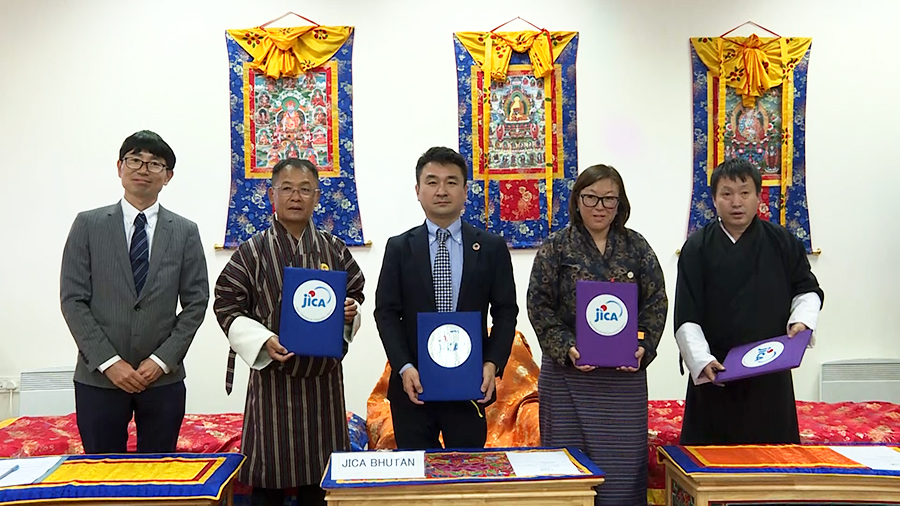
Students and working professionals sent to Japan for study and training by JICA Bhutan are now able to apply their knowledge and expertise by doing practical projects through JICA’s mini-grants programme. The grant is designed to help implement initiatives that promote Bhutan’s socio-economic development. Two alumni of the Japan Alumni Association of Bhutan were awarded Nu 250,000 each recently to address waste management issues at Rangtse Nye in Haa, and conduct mathematics and science workshops in schools across the country.
One of the grant recipients, Nima Gyeltshen, proposed climate mitigation action through waste management and improving the sustainability of Rangtse Nye, a pilgrimage site in Haa.
“We are targeting to address some of the issues that have been faced by the local environment. Especially during the dry season, many local pilgrims visit Rangtse Nye and it has been noticed that waste is thrown along the trails leading to the Nye. I proposed the project to ensure that we manage the waste. It will also benefit the local community through way of educating them and informing them on waste management issues.”
Tshering Choki, another alumna of the Japan Alumni Association of Bhutan will conduct workshop with teachers and parents in collaboration with the Japan GEMS Centre, an education programme of the Japan Environmental Education Forum.
“My project is focused on organising a workshop for educators and parents to support our children to generate more interest in mathematics and science. My institution has been collaborating with an education organisation in Japan. Our counterparts from Japan will help in the facilitation of the workshop for the educators.”
Out of five proposals submitted, two were awarded the grant. The grant proposals should cover fields like socio-economic development, enhancement of livelihood, gender mainstreaming activities, environmental conservation, and promotion of the health of Bhutanese.
“There are two objectives that our mini-grants have, one is to support the alumni organisation activities here in Bhutan. Through this, the alumni can activate the network and activities. We have several criteria, such as feasibility, the impact it has at the end of the activities, and organisational capacities,” said Tomoyuki Yamada, the chief representative of the Japan International Cooperation Agency in Bhutan.
Once the grants are given, the project must be completed within six months.
“We have selected proposals based on three criteria, one is to build a Japan-Bhutan relationship and the second is to promote the economic and environmental prosperity of our country. Third is that they have to be a JAAB member,” said Pema Gyalpo, the general secretary of Japan Alumni Association of Bhutan.
The mini-grant scheme, started in 2021 by the Japan Alumni Association of Bhutan supports mini-projects. Eligible alumni can apply for the grant once a year.
During the award ceremony, JICA Bhutan also launched the mini-grant scheme guideline.
Tshering Deki
Edited by Sherub Dorji









